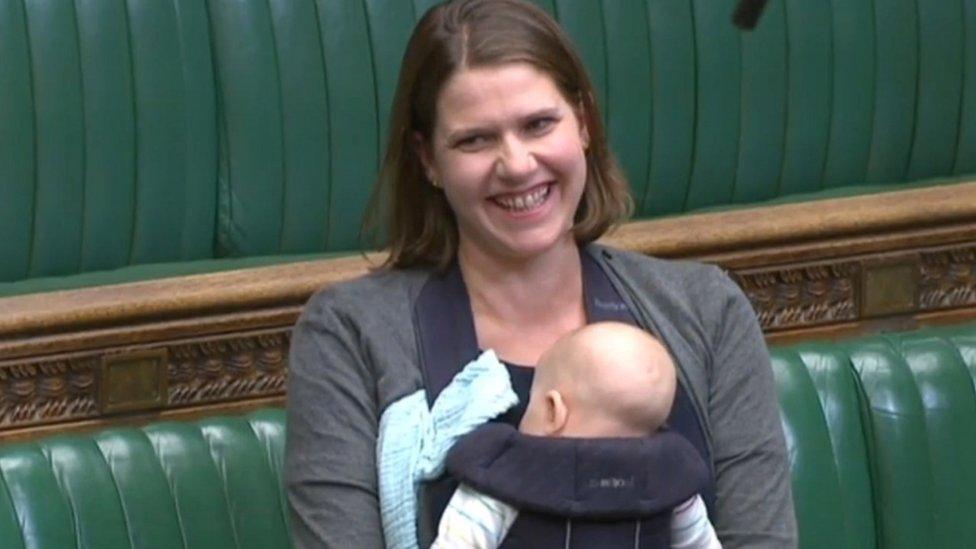Lib Dems: Who is new leader Jo Swinson?
- Published
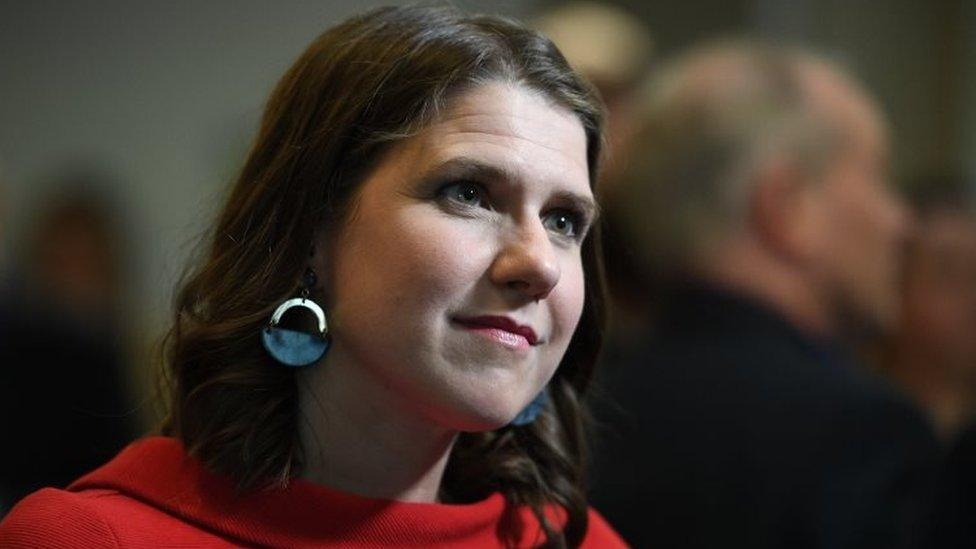
Jo Swinson has won the Liberal Democrat leadership election, becoming the party's first female leader in its 31-year history.
But how did she rise up the ranks of the party to take over from Sir Vince Cable?
Joanne Kate Swinson was born in February 1980 and raised in East Dunbartonshire.
She went to a state school in the town of Milngavie and was politically motivated from a young age.
She told the BBC's Nick Robinson on his Political Thinking podcast she was inspired by Body Shop founder Anita Roddick, and would sign petitions to end cosmetic testing on animals, or read about fair trade ingredients and recycling of materials, while buying strawberry-shaped soap.
Just 21 and ready to run
Jo Swinson joined the Liberal Democrats at the age of 17 and continued her political path at the London School of Economics while studying management.
There she turned her love of technology - which, as a schoolgirl, saw her write to Smash Hits magazine's Games Corner about cheat codes - into a campaign for internet connections in every room in her halls of residence.
And it didn't take long until she was contesting her first Parliamentary seat, aged just 21, taking on John Prescott in Hull East.
She lost, but tried (and failed) again in 2003 for the Scottish Parliament in Strathkelvin and Bearsden.
It was at the 2005 general election that she eventually saw success, becoming the first Lib Dem to win her hometown seat of East Dunbartonshire.
She also became the youngest member of the House of Commons, aged just 25.
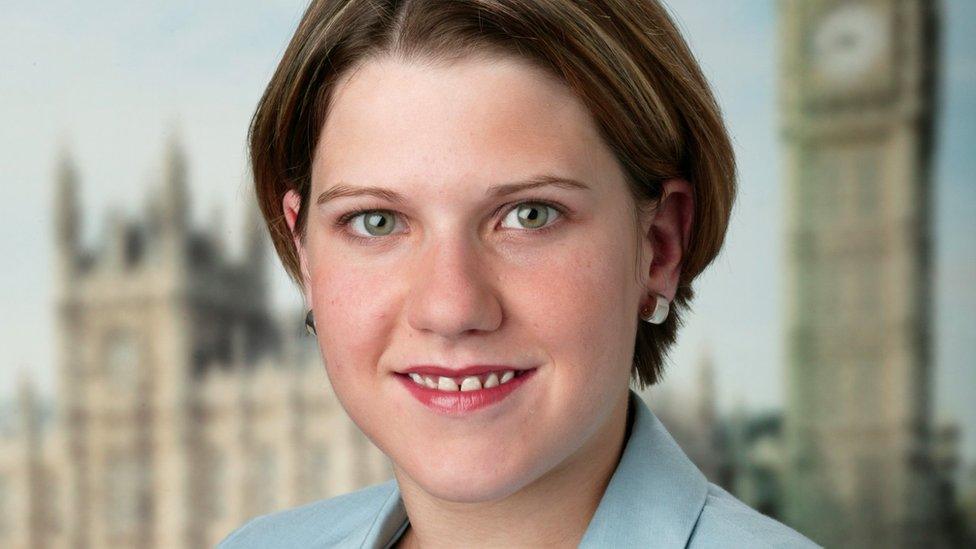
Swinson won her seat in 2005 - aged 25
Ms Swinson held a range of shadow spokeswoman posts in her first five years as an MP, including for culture, women and equalities, and foreign affairs.
She set up an all-party parliamentary group on "wellbeing economics" and introduced a bill to reduce excessive food packaging to the Commons.
But she became a more well-known figure in 2010 after the Lib Dems went into coalition with the Conservatives.
First, Ms Swinson became a parliamentary private secretary to Sir Vince, and after two years, became the same support for then-party leader Nick Clegg.
But come September 2012, it was her turn for a ministerial role, covering employment relations and consumer affairs, later also taking on the role of women and equalities minister.
Booted out
Her first child with husband and fellow Lib Dem MP Duncan Hames was born in 2013.
But she also faced a frightening experience the same year, having gone into anaphylactic shock after eating a biscuit she did not know contained peanuts.
Luckily, her mother was able to drive her to Glasgow's Southern General Hospital and, after an overnight stay, she recovered fully.
Come 2015, Ms Swinson's career took a nose dive when she became one of the many Lib Dems booted out of Parliament at the general election and replaced by a member of the SNP.
However, she used the time out of politics to set up a business and write a book, Equal Power: And How You Can Make It Happen, published two years later.
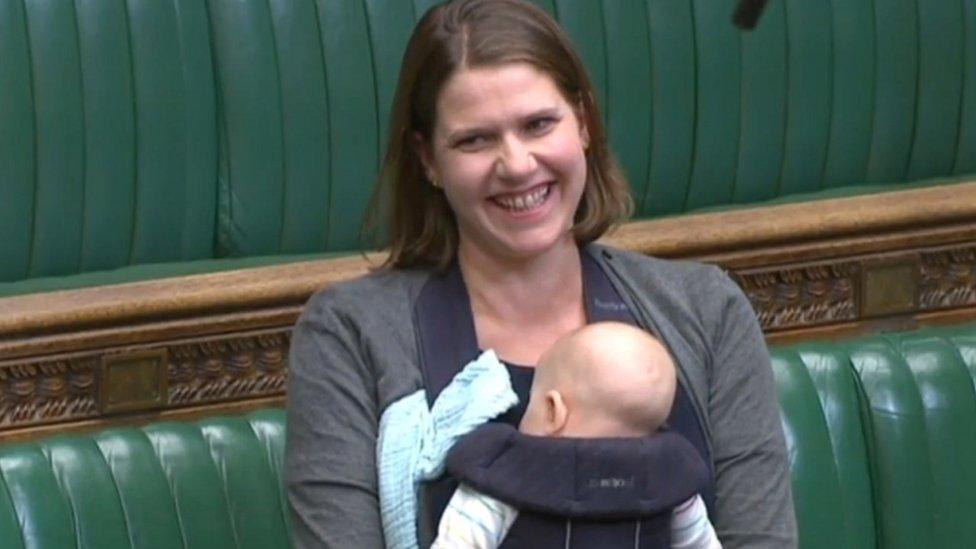
Swinson took baby Gabriel into a debate about proxy voting
Thanks to Theresa May's snap general election, it took just two years for Swinson to make her way back to Westminster, winning back her East Dunbartonshire seat and becoming the party's foreign affairs spokeswoman.
She had been considered as a leadership contender from the off when Tim Farron resigned in 2017, but she ruled herself out early on and instead stood to be the party's deputy leader under Sir Vince - a position she won unopposed.
'Younger and fresher'
Come June 2018, Ms Swinson gave birth to her second child and made history a few weeks later by becoming the first MP to bring a baby into the chamber during a debate on giving proxy votes to politicians on maternity or paternity leave.
In March 2019, when Sir Vince announced he would be stepping down as Lib Dem leader, she saw her chance to make history again.
The front-runner against Sir Ed Davey, she focused her campaign on tackling climate change, backing a further Brexit referendum, ruling out a deal with Labour and Jeremy Corbyn, and insisting on electoral reform.
She also pointed out that being a younger, fresher face could make her more likely to cut through in the media.
With not much to choose between them on policy, BBC political correspondent Jonathan Blake said it came down to whether Lib Dem members preferred a more experienced, older hand or a newer figure, less associated with some of the controversial decisions made by the coalition.
Ms Swinson won out and takes over the reins of a party on the up, still basking in the glow of excellent European and local election results, and increasingly confident in its position as an unashamedly pro-EU force in British politics.
- Published26 June 2019
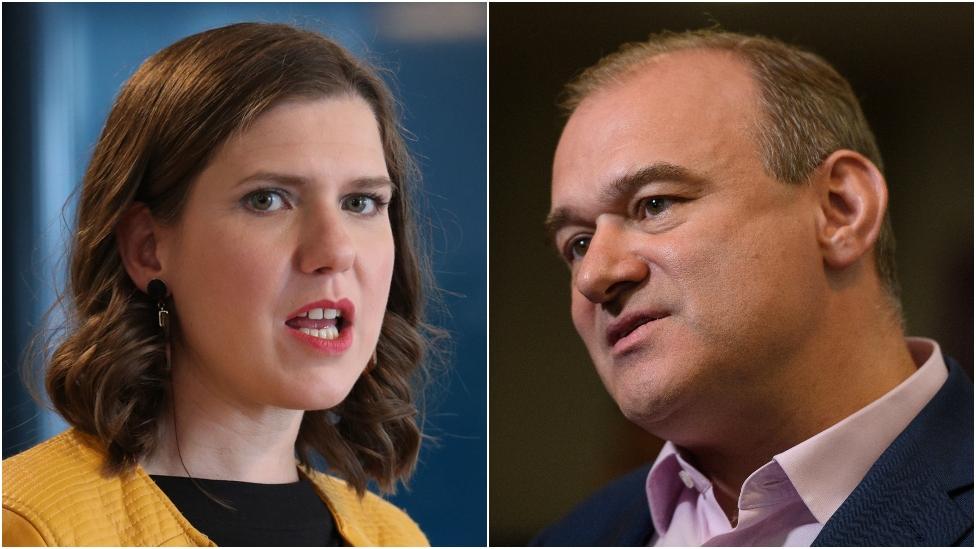
- Published14 September 2018
